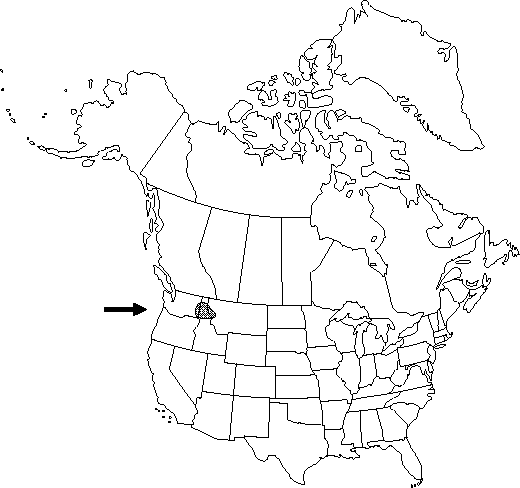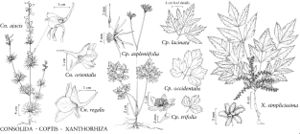Difference between revisions of "Coptis occidentalis"
Fl. N. Amer. 1:28. 1838.
EndemicIllustrated
Basionym: Chrysocoptis occidentalis Nuttall J.Acad. Nat. Sci. Philadelphia 7:8. 1834
Treatment appears in FNA Volume 3.
FNA>Volume Importer |
imported>Volume Importer |
||
| (3 intermediate revisions by 2 users not shown) | |||
| Line 8: | Line 8: | ||
}} | }} | ||
|special_status={{Treatment/ID/Special_status | |special_status={{Treatment/ID/Special_status | ||
| + | |code=E | ||
| + | |label=Endemic | ||
| + | }}{{Treatment/ID/Special_status | ||
|code=F | |code=F | ||
| − | |label= | + | |label=Illustrated |
}} | }} | ||
|basionyms={{Treatment/ID/Basionym | |basionyms={{Treatment/ID/Basionym | ||
|name=Chrysocoptis occidentalis | |name=Chrysocoptis occidentalis | ||
|authority=Nuttall | |authority=Nuttall | ||
| + | |rank=species | ||
|publication_title=J.Acad. Nat. Sci. Philadelphia | |publication_title=J.Acad. Nat. Sci. Philadelphia | ||
|publication_place=7:8. 1834 | |publication_place=7:8. 1834 | ||
| Line 40: | Line 44: | ||
-->{{#Taxon: | -->{{#Taxon: | ||
name=Coptis occidentalis | name=Coptis occidentalis | ||
| − | |||
|authority=(Nuttall) Torrey & A. Gray | |authority=(Nuttall) Torrey & A. Gray | ||
|rank=species | |rank=species | ||
| Line 54: | Line 57: | ||
|publication title=Fl. N. Amer. | |publication title=Fl. N. Amer. | ||
|publication year=1838 | |publication year=1838 | ||
| − | |special status= | + | |special status=Endemic;Illustrated |
| − | |source xml=https:// | + | |source xml=https://bitbucket.org/aafc-mbb/fna-data-curation/src/2e0870ddd59836b60bcf96646a41e87ea5a5943a/coarse_grained_fna_xml/V3/V3_355.xml |
|genus=Coptis | |genus=Coptis | ||
|species=Coptis occidentalis | |species=Coptis occidentalis | ||
Latest revision as of 21:48, 5 November 2020
Rhizomes pale brown. Leaves: blade ternate; leaflets long-petiolulate, blade widely ovate, incised with 2-3 lobes divided ca. 1/2 length to base, margins sharply serrate-denticulate. Inflorescences 2-3(-5)-flowered, often shorter than leaves at anthesis, 10-25 cm, elongating to 32 cm in fruit. Flowers erect; sepals spreading to reflexed, linear-lanceolate, 7-11× 0.4-1 mm; petals linear-lanceolate, nectary nearly basal, blade flattened, narrowly ligulate at apex; stamens 10-35. Follicles 5-15; stipe slightly shorter than body; body oblong, 7.5-14 mm; beak recurved, less than 1 mm. Seeds 2.2-2.6 mm.
Phenology: Flowering spring.
Habitat: Moist, coniferous woods
Elevation: 500-2000 m
Distribution

Idaho, Mont., Wash.
Discussion
Selected References
None.
Lower Taxa
None.
